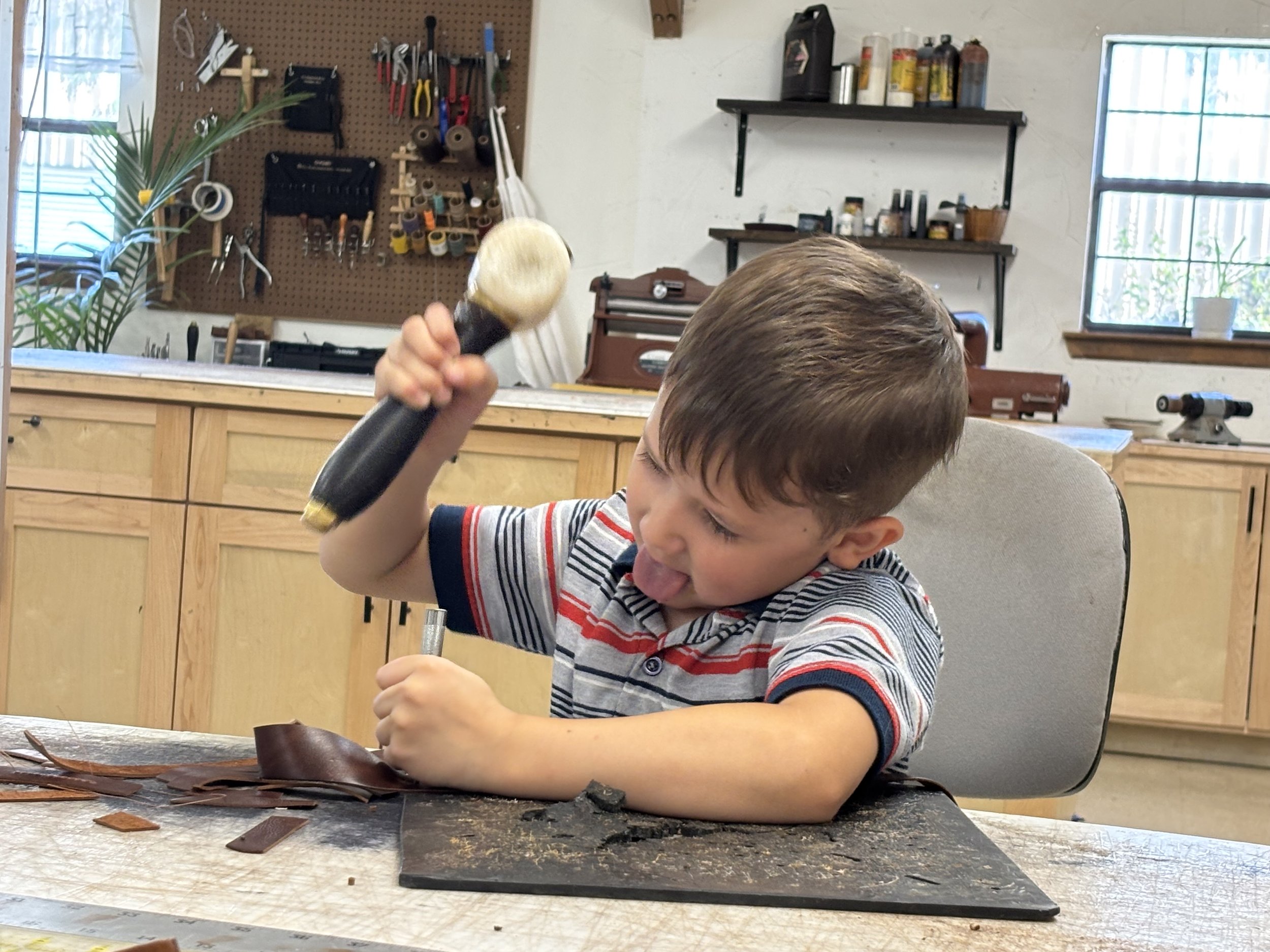Exposing Excuses
The Leather Worker
“It is for freedom that Christ has set us free. Stand firm, then, and do not let yourselves be burdened again by a yoke of slavery.” Galatians 5:1 (NIV)
Dearest Daughters,
Making excuses padlocks the gate to true repentance and overcoming.
In the Bible, Aaron created a golden calf for the Israelites when they became impatient while waiting for Moses to come down from the mountain where he was speaking with God. But when Aaron saw how indignant Moses became upon seeing the idolatry, fear crept into his heart. Instead of owning his part in the sin that had just desecrated Israel’s covenant with God, he grasped for the nearest defense: “You know the people—that they are set on evil.” And then, almost absurdly, he claimed the golden calf had simply “come out” of the fire.
It’s uncomfortable to look at Aaron in this light, but it’s also familiar. That same instinct to defend ourselves, to shift blame, to soften guilt with an excuse, still whispers to each of us when the light of truth begins to pierce the shadows.
Blame shifting and excuse making are two of the most common ways that our sinful nature tries to preserve itself when God’s light begins to shine. Whenever His light reaches into the corners of our hearts, we face a question that determines everything:
Will I take full responsibility for my choices, for my sin, for the outcomes of my actions, in order to be free?
There are always reasons and rationalizations waiting at hand. We all have them. But even the faintest trace of an excuse blocks the door to repentance. And when repentance stops short, so does transformation. We remain trapped in the same habits, circling the same mountains, wondering why we can’t move forward.
Our modern world even encourages this bondage. “Don’t be too hard on yourself,” it says. “You’re only human.” “It’s not your fault—you were wounded.” “You’re just reacting.” Of course, compassion has its place. But self-pity disguised as compassion can become the soft cushion that keeps us from the bedrock of truth—the only place where real freedom begins.
And because we live in an age that prizes comfort over correction, excuse-making often slips in unnoticed, wearing a sympathetic face. It doesn’t usually shout—it whispers. You’ve done enough. You deserve a break.
So what does this excuse-making look like? Where does it pop up? Its subtle influence and temptation are hiding around every corner and slinking behind each curtain.
Perhaps we haven’t spent adequate time tending to the needs—whether character or physical—in our children, and we excuse ourselves first in our own minds: Well, I’ve been so busy, and my husband has a demanding job, which also makes requirements of me, so I haven’t gotten to that.
Our schooling is falling behind, and we excuse it because of the garden. Our garden is weedy, and we excuse it because of the schooling. Our spouse comes home and questions us about the lateness of dinner, and we blame it on the children’s needs in school. A grandmother offers insight about a demanding toddler, and we excuse the toddler by saying they’ve been sick or missed a nap.
All these excuses keep us forever chained to our own habitual problems. We go round and round the same mountain, wondering why we can’t seem to move forward, when the truth is that every excuse we make becomes a link in the chain that binds us.
When we decide to face the whole truth about ourselves, without dilution, without justification, the power of God meets us there. His grace isn’t found in the self-protective shadows; it waits in the light, where we stand bare before Him.
Israel had lived as slaves for generations. Slaves do not take responsibility for the course of their actions; they simply obey commands. God wanted His people not just freed from Egypt, but freed from the slave mindset—the bondage of excuses. As Paul wrote, “It is for freedom that Christ has set us free. Stand firm, then, and do not let yourselves be burdened again by a yoke of slavery” (Gal. 5:1). And that liberty, as Jesus said, comes only when “you shall know the truth, and the truth shall make you free” (John 8:32).
He wanted sons and daughters who could walk in responsibility and freedom, not slaves walking in fear and deflection.
As soon as we offer excuses, we chain ourselves to the very habits, the very sin we’re trying to escape. But when we acknowledge our faults completely and without defense or evasion, grace rushes in like water to the lowest place.
Aaron tried to convince himself, Moses, and even God that he wasn’t really to blame. But freedom never comes through explanation. It comes through repentance.
So, whenever the urge to excuse or justify arises, pause. Ask yourself:
What am I trying to protect—my pride, or my freedom?
Because you can keep one, but never both.
Let us be women who speak the truth—even the hard truth—until it becomes the song of our freedom.
With all my love,
Mom
